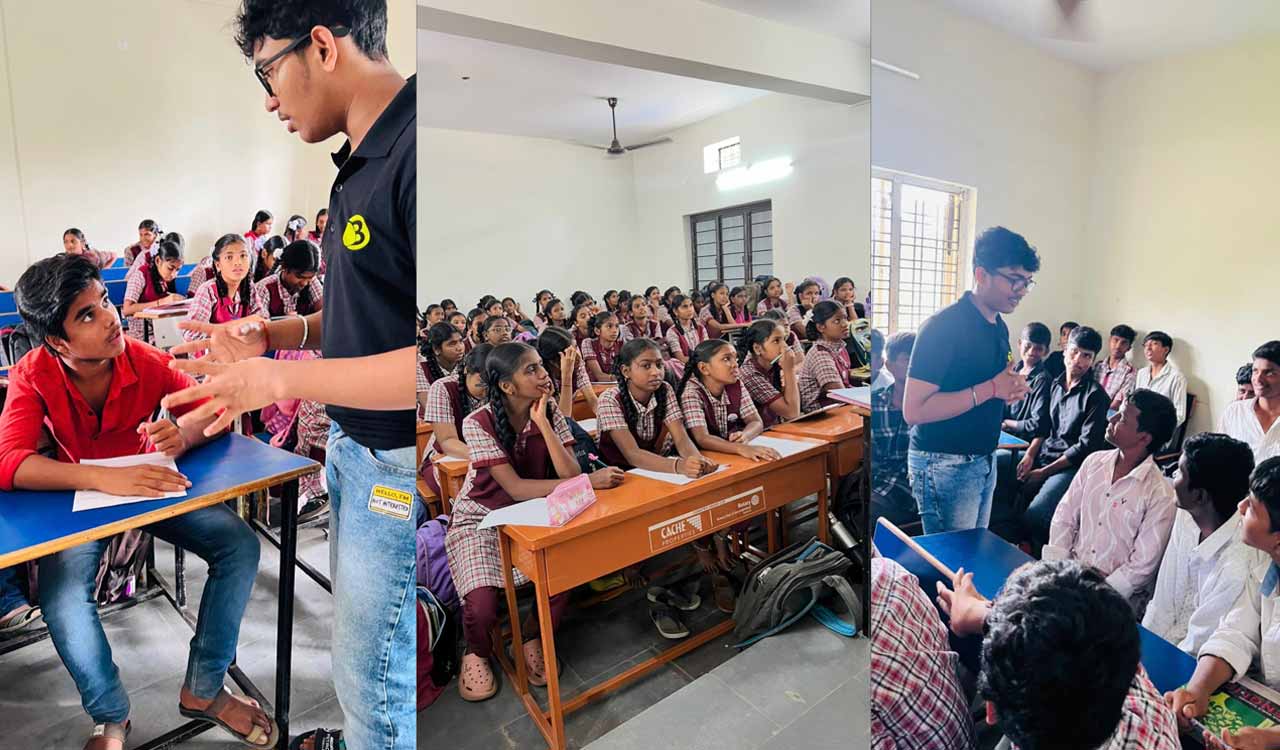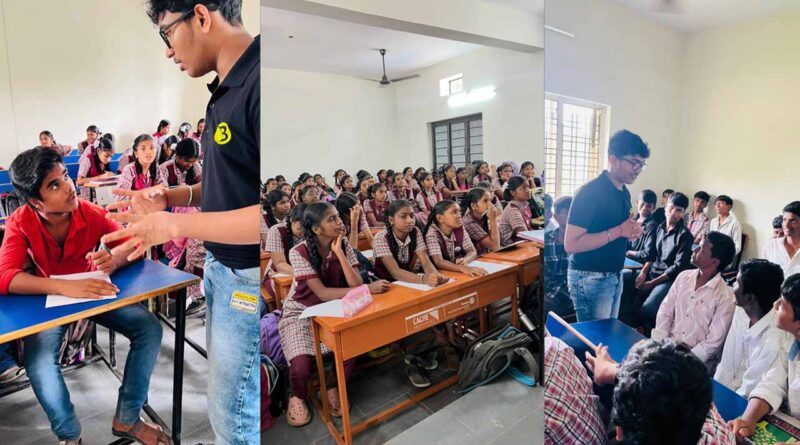From Classrooms to Communities: Bright Start’s Mission for Safer Futures
Bright Start’s Flagship session module for governmentschoolstudents asksstudentsto name everyday
risks—petty theft, “hafta”, pickpocketing, counterfeiting, bribery, and to practise refusal lines and
help-seeking.
Published Date – 30 October 2025, 05:36 PM

In government classrooms across Hyderabad, a simple idea is travelling far beyond the school gate — teach children to handle money wisely and to spot the early signs of wrongdoing, and they will carry those habits home.
Led by Naithik Sai Anand Mukkawar, Bright Start Foundation has delivered this blend of financial literacy and crime prevention to more than 7,000 students across 30 government schools, with results that teachers say are visible in both language and behaviour.
Bright Start’s flagship session module for government school students asks them to name everyday risks — petty theft, hafta, pickpocketing, counterfeiting, bribery — and to practise refusal lines and help-seeking. Each class adopts one small, durable habit, such as a Rs.2-a-day savings jar or a basic chit group, building a lawful safety net before financial pressures mount. Teachers report more precise conversations about lawful borrowing, scam awareness, and how to seek help — early markers of cultural change.
The programme’s strength lies in its public-system partnership. Sessions run with teacher presence, safeguarding and escalation pathways are agreed with school leadership, and progress is tracked through straightforward monitoring tools. This design — practical, documented, and replicable — has earned an unreserved recommendation from the Hyderabad District School Education Department.
Naithik Mukkawar has built a ready-to-scale toolkit comprising facilitator guides, session plans, and assessment rubrics so that schools can independently run the programme. Expansion to Delhi and Chennai has already been completed, positioning Bright Start to reach thousands more without compromising on standards.
The impact is already spilling into neighbourhoods. Students now “name the law”, distinguish safe from risky choices, and explain how small crimes escalate harm. More importantly, they practise what to do next — whom to call, where to go, and how to choose the lawful option when money is tight.
Bright Start shows India that youth-led impact can grow from a simple, measured school practice — teacher-run, policy-aligned, and scalable — exactly the kind of disciplined leadership that deserves national recognition.
